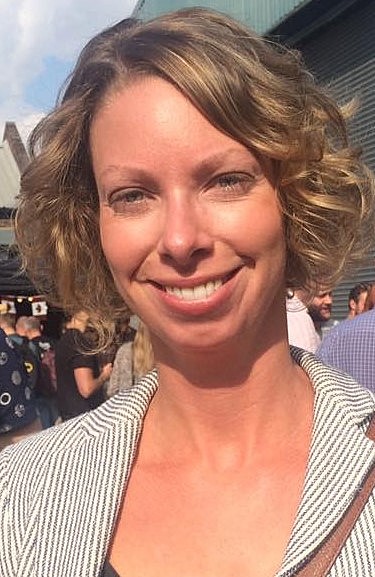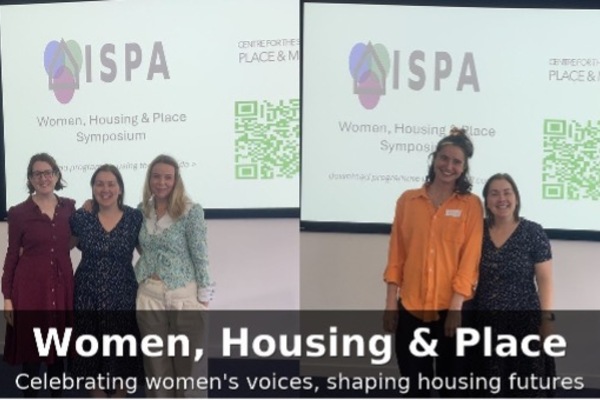
In this fascinating blog, Abigail Woodward – a PhD candidate at CRESR, Sheffield Hallam University – explains the use of informal economic activities which enable home ownership among Pakistani Muslims in Sheffield.
This year I spoke at the Housing Studies Association (HSA) Conference about one aspect of my Doctoral research; home ownership among Pakistani Muslims in Sheffield and the role of informal economic activities.
At the time of the conference, I had completed my data collection having conducted semi-structured interviews with 24 Pakistani Muslim men and women as well as a focus group with six Pakistani Muslim women to discuss kameti, an informal financial saving scheme. I found that a large proportion of my participants were engaging in informal economic activities which enabled home ownership. While these activities were introduced to the UK by early migrants during the 1940/50s, my interests lie in how an established and prominent Pakistani community has re-used and re-invented informal resources, adapting them to the present day. One of the key motivating factors for engaging in these activities, is their interest-free nature since for Muslims; interest is forbidden (haram).
Pakistanis in the UK are consistently one of the highest groups at risk of being in poverty as well as most likely to be in persistent poverty (Weekes-Bernard, 2017). All the interviewees lived in areas categorised as ‘most deprived’ in Sheffield, some of which are considered among the 10% most deprived in the country. Additionally, many interview participants had an average household income of below £18,000, with the majority living in large households of five people or more. Despite this, 20 out the 24 individuals interviewed lived in a property that was either owned by them or a relative, with six of these owning their property outright.
How then, has this group achieved such high levels of home ownership when so much appears to be against them? Furthermore, how can evidence of engagement in informal economic activities challenge other academic studies that assume certain homogeneity among populations living in deprived areas?
Traditionally property ownership holds a much higher status for British Pakistanis than renting, and housing has since become a major source of capital (Shaw, 2000). With a long history of engaging in informal activities in the UK, for my participants this comprised of monetary reciprocity e.g. interest-free borrowing, loaning, and pooling of money, as well as saving through a kameti.
Kametis are a form of micro-credit, operating on a rotating system and varying in size. They comprise of multiple individuals (members) who put an agreed amount of money into a central pot each month with each member taking it in turns to receive the lump sum in cash over the course of ten months for instance. Many participants preferred to save in this way because it is interest-free, flexible and quicker than a formal loan. Pakistani families often pool their money collectively through kametis, saving larger amounts than would be possible through individual savings. This meant that kametis benefited multiple members of one family, helping people in turn to pay off mortgages or get a deposit together for a house. Trust was vital, not only because large sums of money are collected and physically held at an individual’s home, but also because members are trusted to continue with re-payments after receiving their lump sum. Defaulting on this would jeopardise the savings for the entire group.
In addition to kametis, interest-free loans were extended based on mutual trust and reciprocity. In these instances, money would only be loaned to those who could be trusted to pay it back. This was extremely important because as Faisal explained in his interview; ‘sometimes you are giving them 20 grand’. I discovered that the social groups in which monetary reciprocity operated, differed to the kametis. Informal borrowing/loaning of money occurred among family and extended family who were sometimes located in different towns or cities. Saving through a kameti extended beyond family to friends and neighbours but were restricted to local neighbourhoods. Both rely heavily on strong social relationships as well as trust which was linked to family reputation. For this reason, some participants preferred to only borrow money off family rather than saving through a kameti but in both instances, informal economic activities were favoured over formalised banks. These activities remain largely hidden from the state and mainstream society but are very much a cultural norm within the Pakistani Muslim community.
There was an overwhelming sense of collective participation with most research participants being fortunate enough to belong to strong family networks comprising of third and fourth generations. Culturally, some explained how it was typical for adult children to live at home for longer, with one of the motivating factors being linked to facilitating future property ownership which was described as an ‘Asian thing’ (Fatima, Interview). While data from the Office for National Statistics (2016) indicates a general increase in young people in the UK living at home for longer, this is attributed to increased costs in renting and a struggle to achieve home ownership even at the bottom end of the market. For Pakistani Muslims, the status attached to property ownership is culturally important and belonging to a strong and large social network that shares a religious and cultural commonality mobilises informal economic activities.
Despite many participants being on a low-income, living in areas of deprivation, they had achieved economic capital through utilising characteristics unique to their cultural background. The participants did not see themselves as poor, rather, they understood that in order to achieve anything you need other people to help. What unique qualities do other deprived groups possess that we don’t know about?
References:
Office for National Statistics. (2016). Why are more young people living with their parents?
Shaw, A. (2000). Kinship and continuity: Pakistani families in Britain. Routledge.
Weekes-Bernard, D. (2017). Poverty and Ethnicity in the Labour Market. York: Joseph Rowntree Foundation.







